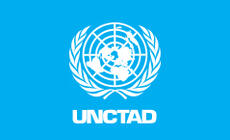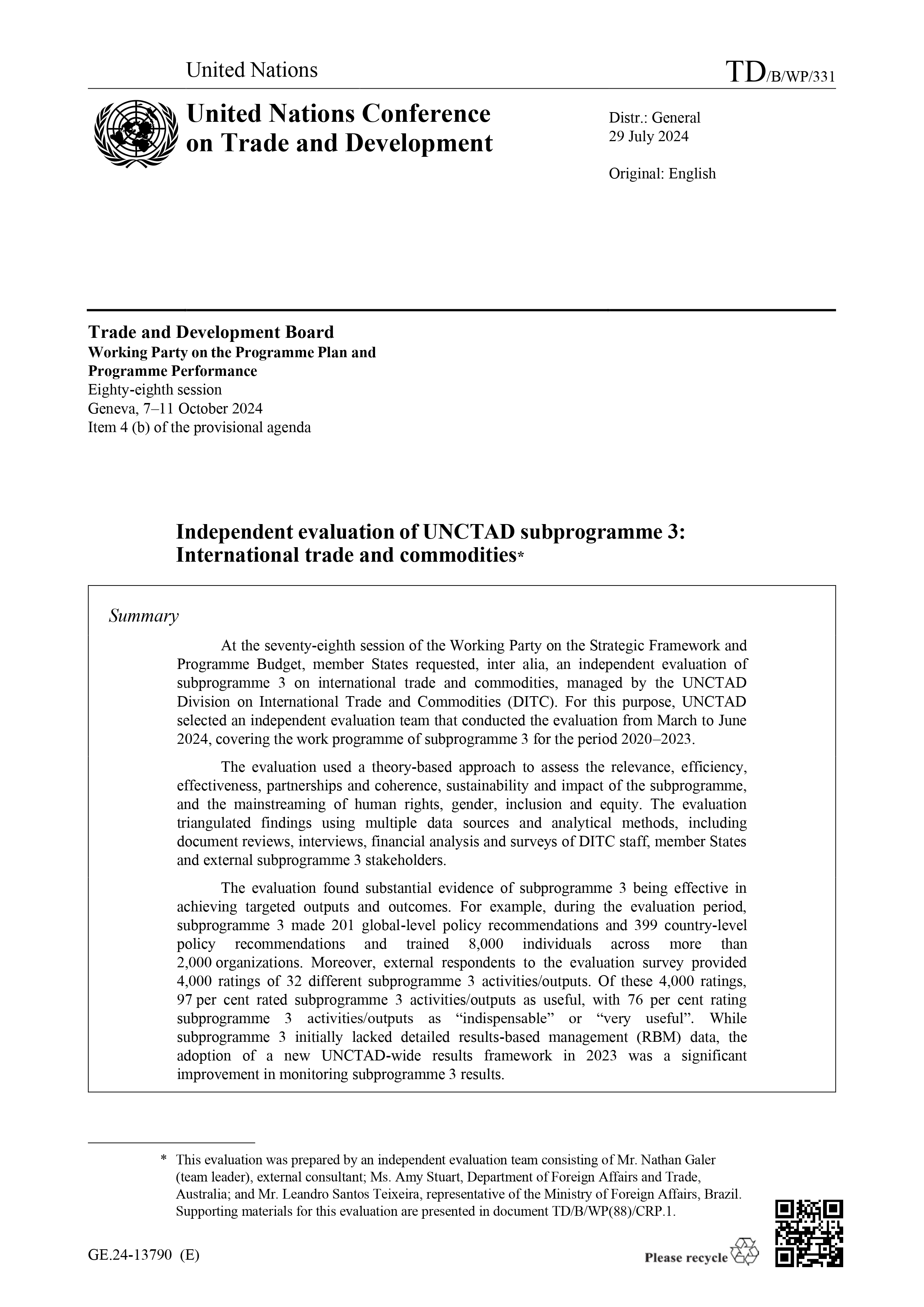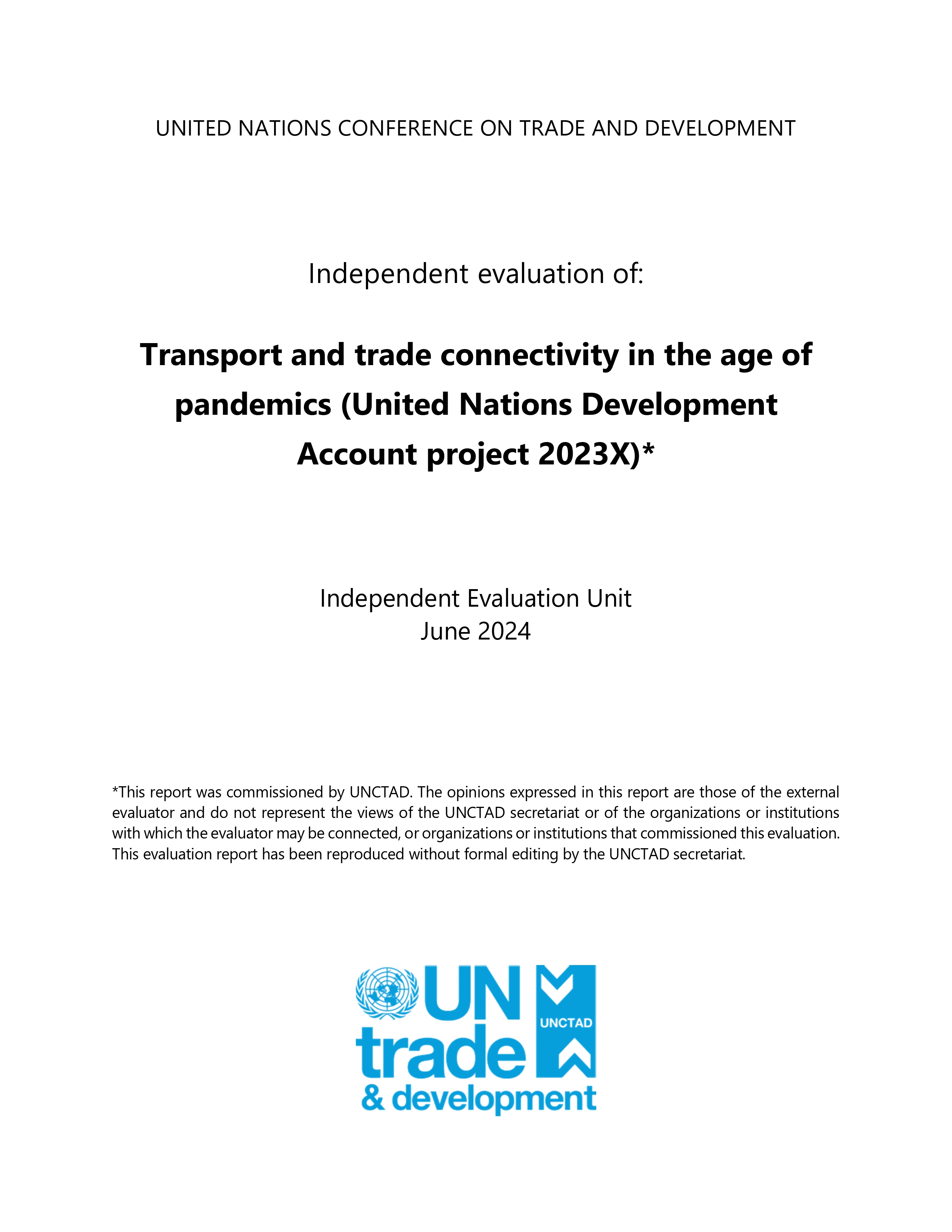Institution Background
Headquartered in Geneva, United Nations Trade and Development (UNCTAD) supports developing countries in benefiting from globalization by providing analysis, building consensus, and offering technical assistance. It promotes sustainable development through trade, investment, and technology, and addresses challenges like economic diversification, financial stability, innovation, climate adaptation, and digital access, aligning with the Sustainable Development Goals. The goal of UNCTAD is prosperity for all.
Evaluation Function
Evaluations at UNCTAD provide key evidence to support effective program planning, design and implementation, and help ensure that activities are results oriented. Evaluations also facilitate institutional learning by identifying successes and areas for improvement, allowing UNCTAD to replicate good practices and make course corrections. They are guided by the UNCTAD Evaluation Policy (last updated in 2023) which outlines principles, roles and processes for conducting evaluations, in accordance with UNEG norms and standards.
Independence of the evaluation function is ensured at three levels:
- Structural: The Independent Evaluation Unit (IEU) is positioned in the Office of the Secretary-General, with the Head reporting directly to the Secretary-General.
- Functional: IEU independently manages the planning, funding, commissioning, supervision, and reporting of evaluations. The Head of the IEU reports directly to relevant management and to the UNCTAD intergovernmental body dealing with evaluation.
- Behavioral: External evaluators hired do not have prior or expected future involvement in evaluated programmes. If exceptions occur, measures are implemented to protect evaluation integrity, and these are disclosed in the report.
UNCTAD's quality assurance system for evaluations focuses on both the process and its outputs. IEU ensures transparency, consultation, and adherence to minimum quality
standards throughout the evaluation cycle. Evaluations must use appropriate methodologies and provide clear, evidence-based findings and recommendations. Quality is further assured through systematic peer reviews, where draft reports undergo scrutiny by internal and external stakeholders to validate data, findings, and conclusions. Feedback is incorporated to improve accuracy and relevance. A quality assessment checklist is used for each evaluation, and UNCTAD's evaluation function undergoes a biennial review by the UN Office of Internal Oversight Services to identify strengths and areas for improvement.
For each independent evaluation, a management response is prepared by the responsible manager, justifying acceptance of recommendations. Division Directors ensure timely follow-up, while action plans are developed to address accepted recommendations, specifying actions, responsible parties, and timelines. Recommendations beyond divisions’ authority are handled by the Deputy Secretary-General.
Evaluation utility is enhanced by planning and conducting evaluations in a timely way (with clear intent to use their results and inform decision-making processes), disseminating the evaluation results, and making all evaluation reports and accompanying management responses publicly available online.



